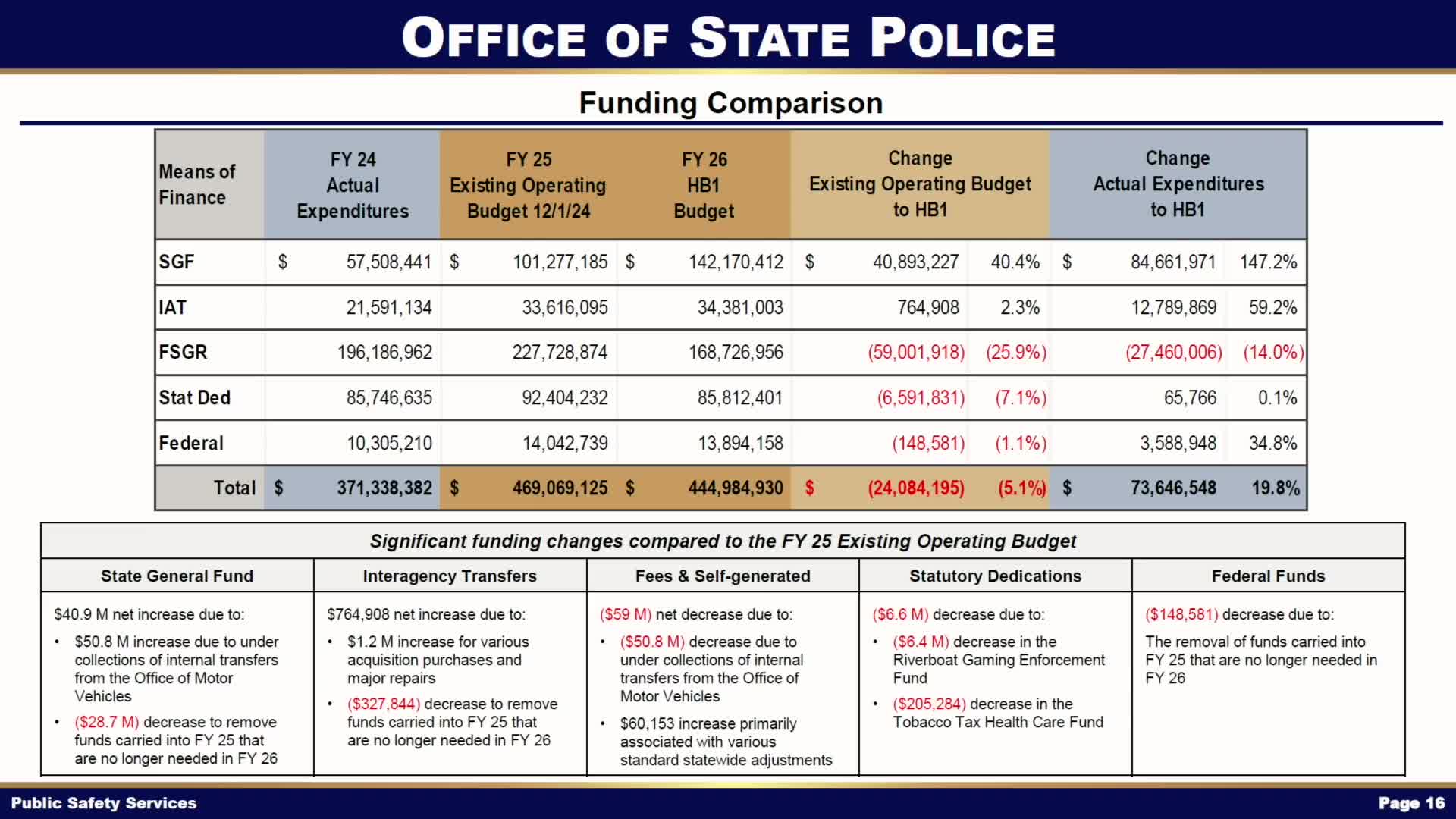State Police face multimillion‑dollar shortfall after OMV fee changes; lawmakers press for troop‑by‑troop impact
Get AI-powered insights, summaries, and transcripts
Subscribe
Summary
Appropriations members were told a projected $50.8 million undercollection tied to Office of Motor Vehicles reinstatement fee changes will reduce State Police resources; officials said the figure may now be higher and described operational impacts and overtime history.
House Appropriations members were warned April 7 that a recent change affecting motor‑vehicle fee collections and a persistent mainframe outage together have created a large revenue shortfall that hits State Police budgets statewide.
“Of the FY25 projection of $81,600,000 budgeted, they are estimated to under collect 50,800,000,” the House Fiscal Division slide said, summarizing how changes to reinstatement fee collections flow to State Police. Zion Wilson explained the change: “With revisions based on Act 629, it authorized OMV to settle debt referrals to ODR and to avoid litigation, and that would be reduced to the original amount owed.”
Lieutenant Colonel Robert Burns, the State Police chief administrative officer, told the committee the shortfall and OMB/OMV system downtime have combined to create “a very, precarious situation.” Burns described the scope of State Police deployments and the agency’s reliance on the affected revenue. “Without that funding… all the services that state police provides across the board… are all detrimentally impacted,” he said. He added that responders in the current fiscal year included hurricane response, a terrorist attack, the Super Bowl and Mardi Gras — national‑scale events that carry high operational bills.
The presentation traced the mechanics of the shortfall: of the estimated $50.8 million omission, roughly $39.4 million tied to other charges funds (for items such as the statewide wireless network, utilities and crime‑lab outsourcing) and about $46.7 million to interagency transfers (OTS payments, telecommunications and support services). The slides also justify program adjustments that included a $846,000 net personnel increase and an operating services increase largely for acquisition and equipment financing.
Wilson and Lieutenant Colonel Burns gave workforce figures: State Police is recommended at $445,000,000 in FY26, with 1,808 authorized TO positions and 43 FTEs; as of Dec. 30 the agency reported 142 vacancies and had 1,010 troopers in the field of whom 637 were assigned to patrol. Committee members were told overtime was significant in FY24 ($29.9 million) and that escorts and special details account for a sizeable share.
Asked about the arithmetic, Burns said the original $50.8 million estimate is now “probably much higher” and committed to prepare a one‑page list of troop‑by‑troop impacts the shortfall would cause if it is not restored. Committee leaders requested that troop‑level consequences be presented as the budget process continues.
The shortfall arises from statutory and administrative change plus operational pressures; the committee did not take a vote at the hearing but sought further documentation and troop‑specific impact estimates before deciding on remedies or supplemental requests.
